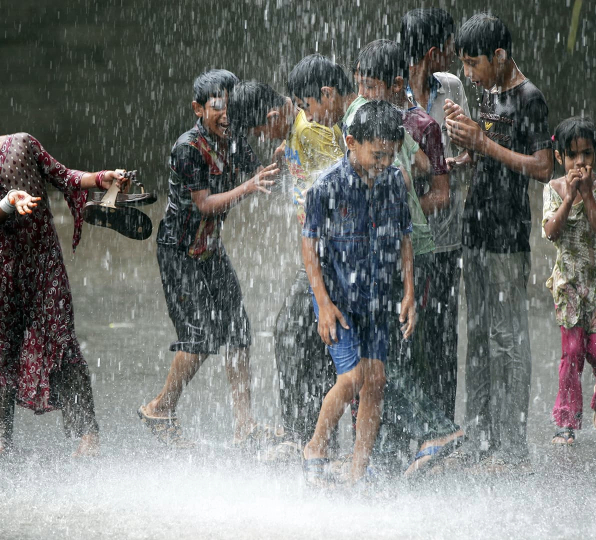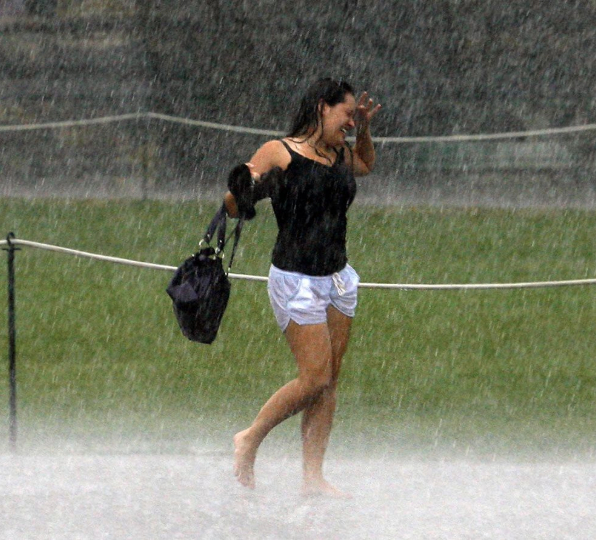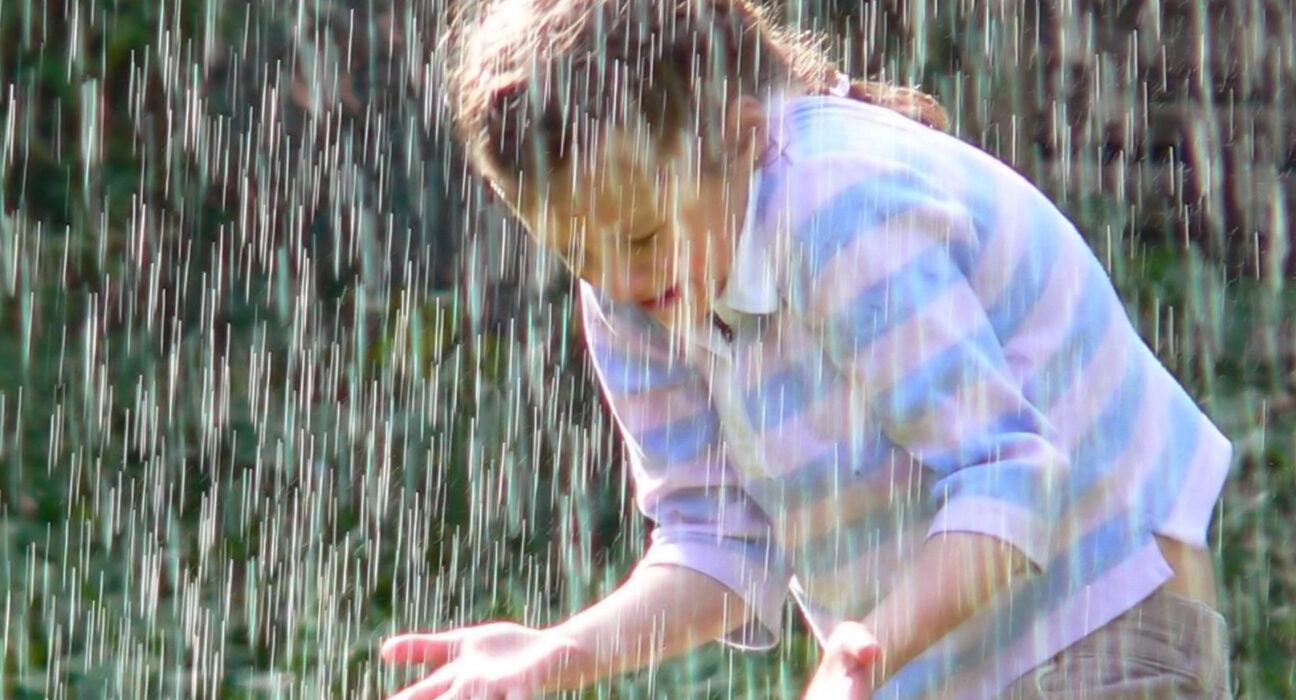Introduction:
Arguments and old wives’ stories about getting sick from being in the rain or getting a cold are frequently sparked by rainy weather. But is this belief based on anything real, or is it just an old myth? We’ll look at the science behind rainwater collection and whether or not it really causes disease in this blog post.
1. The Cold and Rain Connection
The belief that being wet in the rain directly causes colds is a longstanding misconception that has persisted through generations. Despite its prevalence, this notion is not grounded in scientific fact. In reality, the common cold, which is caused by viruses such as rhinovirus or coronavirus, is not directly linked to exposure to cold or wet weather.
The common cold is primarily spread through the transmission of viruses, typically via respiratory droplets expelled when infected individuals cough, sneeze, or talk. These droplets can contain viral particles, which can then be inhaled by others or transferred to surfaces where they can survive for a period of time. When a person comes into contact with these viruses, either through direct contact with an infected individual or by touching contaminated surfaces and then touching their face, particularly their mouth, nose, or eyes, they may become infected themselves.
Contrary to popular belief, exposure to cold or wet conditions does not increase one’s susceptibility to catching a cold. While it’s true that cold weather may lead to certain physiological changes in the body, such as constriction of blood vessels in the nasal passages, which could theoretically make it easier for viruses to take hold, this alone is not sufficient to cause a cold. Similarly, being wet from rain or other sources of moisture does not directly impact one’s immune system or make them more susceptible to viral infections.
Instead, the onset of colds during colder months may be attributed to factors such as spending more time indoors in close proximity to others, where viruses can spread more easily, as well as the seasonal prevalence of certain viruses. Additionally, the dry indoor air prevalent during winter months can contribute to irritation of the respiratory tract, potentially making it easier for viruses to infect the body.
To reduce the risk of catching a cold, it’s important to practice good hygiene habits, such as frequent handwashing with soap and water, avoiding close contact with individuals who are sick, and maintaining a clean environment by regularly disinfecting commonly touched surfaces. Wearing appropriate clothing to stay warm and dry in cold or wet weather can help prevent discomfort but is not a direct deterrent against colds.
In summary, while the connection between cold weather or rain and the common cold is a widely held belief, it is important to recognize that colds are caused by viruses, not by exposure to temperature or wetness. By understanding the true mechanisms of cold transmission and taking proactive measures to minimize exposure to viruses, individuals can better protect themselves from falling ill.
2.Immune System Functionality
The immune system stands as our body’s stalwart defender, tirelessly combating invading pathogens and keeping us healthy. Its intricate network of cells, tissues, and organs works ceaselessly to identify and neutralize harmful agents, preventing illness and maintaining our well-being. Understanding its functionality illuminates the vital role it plays in our overall health and resistance to infections.
At the forefront of immune defense are white blood cells, aptly named for their colorless appearance and their relentless pursuit of pathogens. These cells patrol our bloodstream, lymphatic system, and tissues, ready to spring into action at the first sign of trouble. They detect foreign invaders, such as bacteria, viruses, and fungi, and mount a coordinated attack to eradicate them.
However, the effectiveness of our immune system is not solely determined by its intrinsic capabilities. Our overall health profoundly influences its vigor and resilience. A well-nourished body, fortified with a balanced diet rich in vitamins, minerals, and antioxidants, provides the essential building blocks for a robust immune response. Regular exercise promotes circulation, enhances immune cell activity, and reduces inflammation, bolstering our defenses against infections.
Conversely, factors that compromise our health can undermine immune function, rendering us more susceptible to illness. Chronic stress, for instance, unleashes a cascade of hormones that suppress immune activity, leaving us vulnerable to infections. Lack of sleep disrupts the delicate balance of immune-regulating chemicals, impairing our body’s ability to mount an effective defense against pathogens.
While external factors like weather may affect our comfort, being wet from rain does not directly weaken our immune system or predispose us to illness. The common belief that exposure to cold or damp conditions causes colds stems from misconceptions rather than scientific evidence. Colds are predominantly caused by viruses, typically rhinoviruses, coronaviruses, or adenoviruses, which are spread through respiratory droplets when infected individuals cough, sneeze, or talk. Simply being wet or cold does not increase our susceptibility to these viruses unless it compromises our overall health or exposes us to infected individuals.
Therefore, maintaining a strong and resilient immune system relies on nurturing our overall health and well-being. Prioritizing adequate sleep, managing stress effectively, staying physically active, and consuming a nutritious diet lay the foundation for robust immune function. While rain may dampen our spirits, it need not dampen our immune defenses. By adopting healthy lifestyle habits and understanding the true nature of immune resilience, we empower ourselves to ward off illness and embrace vitality year-round.
3.Temperature and Rain
Despite the longstanding belief that being cold or wet can directly cause illness, scientific understanding tells a different story. While exposure to cold or wet conditions may make us uncomfortable, it does not inherently lead to sickness. Rather, illness, particularly respiratory infections like the common cold, is primarily caused by viruses rather than environmental factors.
The human body is remarkably adept at maintaining its internal temperature within a narrow range, typically around 98.6°F (37°C), regardless of external conditions. This process, known as thermoregulation, involves a complex interplay of physiological mechanisms designed to preserve homeostasis. When exposed to cold environments, the body employs various strategies to conserve heat and maintain its core temperature. These include vasoconstriction, where blood vessels in the skin narrow to reduce heat loss, and shivering, which generates heat through muscle contractions.
Similarly, getting wet from rain or other sources does not directly compromise our health. While prolonged exposure to cold, damp conditions may contribute to discomfort and increase the risk of conditions like hypothermia, it does not inherently weaken the immune system or make us more susceptible to illness. Instead, the belief that rain or cold weather causes illness likely stems from observations of seasonal patterns in viral infections, such as the common cold, which tend to peak during colder months.
Viruses, the true culprits behind most respiratory infections, thrive in specific conditions conducive to their survival and transmission. These conditions include low humidity, crowded indoor environments, and close contact with infected individuals. Contrary to popular belief, being cold or wet does not directly create a hospitable environment for viruses to thrive. Instead, the spread of respiratory viruses is driven by factors such as close interpersonal contact, inadequate ventilation, and compromised immune defenses.
Understanding the true nature of illness transmission can empower individuals to take proactive measures to protect their health, regardless of external weather conditions. Practicing good hygiene, such as frequent handwashing, covering coughs and sneezes, and avoiding close contact with sick individuals, remains crucial for preventing the spread of viral infections. Additionally, maintaining a healthy lifestyle, including proper nutrition, regular exercise, and adequate sleep, supports overall immune function and resilience against illness.
4.Hygiene Habits
Personal hygiene is a cornerstone of good health, playing a critical role in preventing the spread of illness and disease. By adopting simple yet effective hygiene habits, individuals can significantly reduce their risk of contracting and spreading infectious pathogens. From washing hands diligently to maintaining a clean environment, these practices are essential components of a proactive approach to health maintenance.
One of the most fundamental and effective hygiene practices is frequent handwashing. Hands serve as conduits for a multitude of germs and bacteria, picked up from surfaces, objects, and interactions with others. Washing hands with soap and water for at least 20 seconds helps remove dirt, germs, and viruses, preventing their transmission to oneself and others. It is especially crucial to wash hands before preparing or eating food, after using the restroom, coughing, sneezing, or touching potentially contaminated surfaces.
Equally important is the habit of avoiding touching the face, particularly the eyes, nose, and mouth, with unwashed hands. These mucous membranes provide entry points for pathogens into the body, increasing the risk of infection. By refraining from touching the face with dirty hands, individuals can minimize the likelihood of introducing harmful microbes into their respiratory or digestive systems.
Maintaining a clean environment also contributes significantly to preventing illness transmission. Regularly disinfecting high-touch surfaces, such as doorknobs, light switches, countertops, and electronic devices, helps eliminate germs and reduce their potential spread. Keeping shared spaces, such as kitchens, bathrooms, and common areas, clean and tidy further minimizes the risk of contamination and infection.
In addition to these basic hygiene practices, it is essential to cultivate habits that promote overall cleanliness and well-being. This includes proper oral hygiene, such as brushing and flossing teeth regularly, to prevent dental problems and bacterial buildup in the mouth. Showering or bathing daily helps remove sweat, dirt, and bacteria from the skin, maintaining its health and reducing the risk of skin infections.
Furthermore, practicing respiratory hygiene, such as covering coughs and sneezes with a tissue or the elbow, can prevent the spread of respiratory droplets containing infectious particles. Proper disposal of used tissues and regular laundering of cloth face coverings are also important for minimizing the risk of transmission.
5.Benefits of Rain
Rain is not merely a weather phenomenon; it is a vital force of nature that brings a myriad of benefits to ecosystems, communities, and individuals alike. While it may be easy to focus on the inconvenience of getting wet or the gloominess associated with rainy days, it’s essential to recognize and appreciate the positive aspects of rain.
One of the most significant benefits of rain is its role in replenishing water sources. Rainfall replenishes rivers, lakes, and reservoirs, ensuring a sustainable supply of freshwater for drinking, agriculture, industry, and wildlife. In regions where water scarcity is a pressing concern, rain is a precious resource that helps alleviate drought conditions and support ecosystem health.
Moreover, rain plays a crucial role in promoting plant growth and agriculture. Moisture from rainwater nourishes soil, providing essential hydration and nutrients for plant growth. For farmers and gardeners, timely rainfall is essential for crop productivity and yields, contributing to food security and livelihoods. Rain also helps maintain forests and natural habitats, supporting biodiversity and ecosystem resilience.
In addition to its role in sustaining life on land, rain plays a vital role in improving air quality. Rainfall helps remove pollutants and particulate matter from the atmosphere, effectively cleansing the air we breathe. This process, known as “rain cleansing,” helps mitigate air pollution, reducing respiratory illnesses and promoting overall health and well-being.
Embracing the beauty of rainy weather involves shifting our perspective and appreciating the unique benefits it brings. Rainy days offer an opportunity for reflection, introspection, and renewal. The sound of raindrops tapping against windows, the earthy scent of petrichor, and the lush greenery that follows a rainfall evoke a sense of tranquility and rejuvenation.
Moreover, rainy weather provides an excellent excuse to indulge in cozy activities indoors, such as reading a book, sipping hot tea, or spending quality time with loved ones. It offers a respite from the hustle and bustle of daily life, inviting us to slow down, unwind, and appreciate the simple pleasures of life.
While it’s natural to associate rainy weather with inconvenience or discomfort, embracing the positive aspects of rain can help cultivate a deeper appreciation for the natural world and its cycles. By recognizing the essential role that rain plays in sustaining life and nourishing the planet, we can learn to find beauty and joy even in the midst of stormy weather. So, the next time the skies open up and rain begins to fall, let’s pause, take a moment to appreciate its benefits, and embrace the beauty of nature’s gift.


Conclusion:
In conclusion, getting wet in the rain does not directly lead to illness. Colds and other infections are caused by viruses, and the body’s immune system plays a crucial role in preventing illness. It’s essential to focus on overall health, hygiene habits, and understanding the science behind sickness to dispel the age-old myth that rain can make you sick. So, the next time you find yourself caught in a downpour, feel free to enjoy the rain without worrying about catching a cold.












